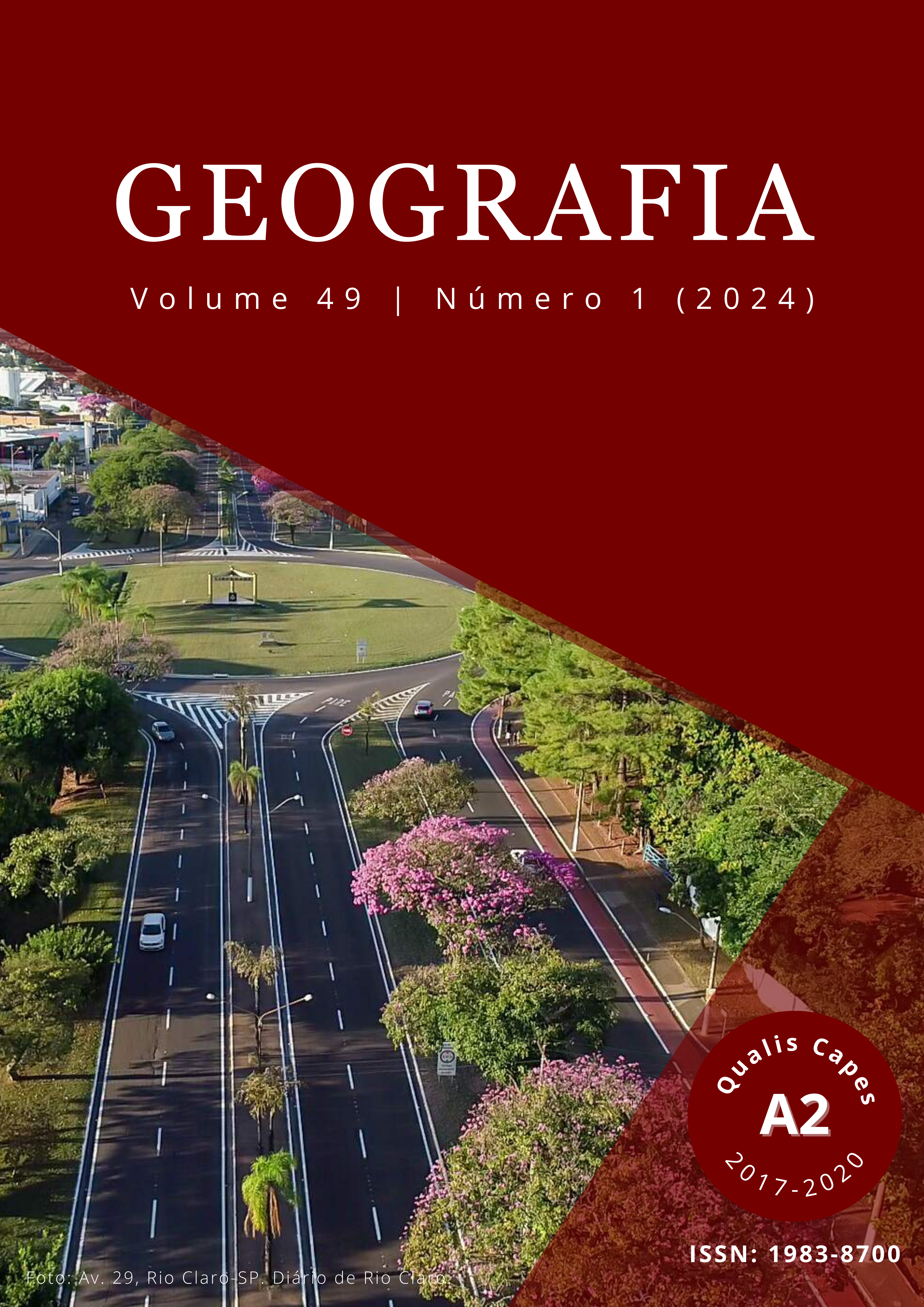Scientific overview of litter in Brazil: a scientometric and textual approach
DOI:
https://doi.org/10.5016/geografia.v49i1.18104Abstract
This study identified relevant topics in litter research in Brazil, highlighting aspects, terms, and interconnected analyses. Using Google Scholar, 300 articles with the term "litter" in the title were selected, and their abstracts were analyzed with the Iramuteq software. A variety of sampling and analysis methods related to the production, accumulation, and decomposition of litter were identified. The results highlight terms such as "decomposition," "soil," "nutrient," and "forest," showing a higher recurrence in specific methodologies and vegetation types. The analysis also revealed a significant gap in non-forest environments, indicating the need for more comprehensive studies. The application of IRAMUTEQ and the broad scope of Google Scholar proved effective in organizing and interpreting large volumes of textual data. This research contributes to the advancement of knowledge about litter, demonstrating the utility of scientometric approaches and highlighting the need for new investigations to promote the sustainability and conservation of Brazilian ecosystems.
Downloads
Published
Issue
Section
License
Copyright (c) 2024 GEOGRAFIA

This work is licensed under a Creative Commons Attribution 4.0 International License.
The authors maintain the copyright and grant GEOGRAFIA the right of first publication, with the articles simultaneously licensed under the Creative Commons BY 4.0 License, which allows sharing and adapting the articles for any purpose, as long as appropriate credits and provisions of image rights, privacy or moral rights. Other legal attributions can be accessed at: https://creativecommons.org/licenses/by/4.0/legalcode.en.
Geography, Rio Claro, SP, Brazil - eISSN 1983-8700 is licensed under the Creative Commons BY 4.0 License.





